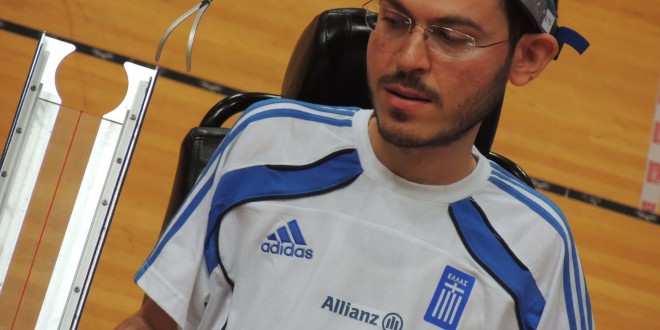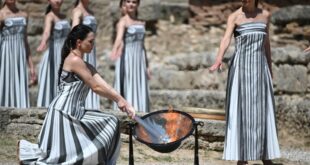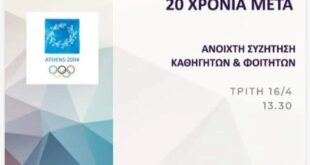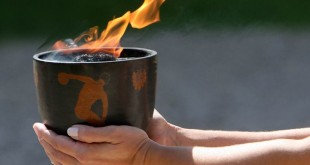The constant effort, the patience, the ambition, his tenacity and perseverance, are just some of the key elements that make up the puzzle of the person and the athlete Grigoris Polichronidis. Having already tasted the nectar of the Paralympic Gold Medal, aims again to be found in the highest step in the Rio 2016 Paralympic Games.
When and how was your first contact with the sport of Boccia?
The start was in 2001, when I contacted my former physiotherapist George Tzimas – now is my coach-who suggested me to take up the sport of Boccia. Initially I did not know even the existence of the sport, but with the first contact i thrilled and started intensive trainings, having as powerful an incentive to participate in the Paralympics in Athens at 2004.
Would you like to describe the difficulties in your path long sports career?
The Boccia is a very unique sport and relies heavily on the availability of similar equipment. Fortunately, I had great support from my father and very quickly we managed to make our equipment. The Boccia is very demanding, requires many hours of training, continuous improvements of equipment and development of tactical methods.
How it works to you personally but also to the Paralympic athletes the issue of the financial support and sponsors?
Certainly, in Paralympic sports is much more difficult to find sponsors. Important role in this played and the non-view of our sport by the mass media, even in cases of major successes and medals. This clearly has an impact on the arm of sponsorships and the general financial support. In my case-thank God-I have my sponsors, (Allianz, Alpha Bank, Greek Oils), which support me for many years and continue to do so. But in general, the situation is quite difficult and fortunately there is the sponsorship of OPAP, which supports the Paralympic Committee.
After the silver medal in Beijing, came the ultimate recognition of gold medal at London in 2012. We would like to describe that moment.
That time really was my top moment, it was like to climb on Mount Everest. You are at the highest point, the feeling I experienced were unbelievable. I think that is not described by words and by the dominant emotions was the moment of recoil of our national anthem in the greatest sporting celebration of Paralympic Movement. Additionally, the gold medal it was the capstone of labors, sacrifices, and endless hours of training all these years.
Have you defined your goals for the Rio 2016?
My goal always is the gold medal. In any major organization, in every game I participate, I scramble to win. To be realistic, however, the competition is huge, the participating countries have grown, but always what I dream for the Paralympics is the conquest of the peak.
Have you already thought by now your sporting future after Rio?
The Boccia is like billiards, has no age limit, so I like to keep active as an athlete. If everything goes well and I'm loud, my schedule for the next day of Rio will focus on games of 2020 in Tokyo.
As a Paralympic athlete, are you satisfied with the general support of the State?
Under the present treaties, the State really makes everything possible. There are always problems with training areas and economic perks, but what I've learned that we need also to run and reach the right people to find a proper solution.
Do you feel that there is a different approach of Olympic champions and Paralympic champions respectively?
According the law 2725 of 1999, there is equality between Olympians and Paralympians. Before that time there was inequality and imbalance. I want to make known to the public that the problems, anxieties, the good times are common for all the athletes, whether they participate in the Olympics, either at the Paralympics.
 paralympicus.gr Olympics and Paralympics
paralympicus.gr Olympics and Paralympics 





